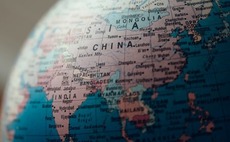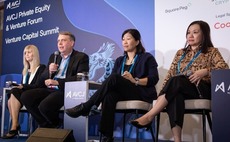
Catalyst completes cool exit
Throughout last year's election campaign, Australian Prime Minister Tony Abbott pledged to repeal the country’s carbon tax on taking office. Five months on, he has yet to do it and the debate rumbles on as to whether the drop in emissions – 0.3% for the year ended September 2013 – is worth the A$7 billion ($6.2 billion) the government says it costs per year.
Actrol Group can claim to have benefited from the legislative change. When the tax was introduced in July 2012, it was accompanied by price hikes on refrigerant gases. Not only would Australia's biggest carbon emitters have to meet the cost of pollution; industrial users of cooling systems run on ozone-depleting HFCs would too.
Farmers and retailers reported price increases of up to 400% on certain commercial refrigerants. The incentive was there to switch to non-ozone depleting HFCs, which meant stronger sales for a ventilation and refrigeration components and systems manufacturer like Actrol.
"With the Montreal Protocol [an international treaty targeting substances that damage the ozone layer] and the carbon tax, there is a move to phase out refrigeration gases that have high levels of hydrocarbons," says Simon Dighton, managing director at Catalyst Investment Managers. "People are phasing out old equipment or retrofitting it."
This was one of the business drivers that saw Catalyst more than double Actrol's turnover to A$240 million in the space of four years. Having injected around A$75 million into Actrol during its ownership period, the GP sold the business to listed plumbing and bathroom products manufacturer Reece Australia at the end of January for A$280 million.
Catalyst bought Actrol from GSA Industries in May 2010 for an enterprise valuation of around A$100 million, with company management taking a minority stake. At the time it was a wholesale business, specializing in refrigerant gas, controls and valves, air conditioning and refrigeration units and servicing equipment.
Within six months, the PE firm completed the bolt-on acquisition of AC Components, which supplies heating and cooling units and components to the residential market.
Dighton adds that Catalyst opened about 20 stores - there are now 61 Actrol outlets and 18 AC Components outlets - in addition to diversifying the product offering and improving working capital efficiency and sourcing.
The exit came in response to reverse inquiries from domestic and offshore companies, starting in early 2013. Reece, which has more than 400 stores throughout Australia, said the deal represented an opportunity to establish a presence in the refrigeration and air conditioning industries.
It is the first exit from Catalyst Buyout Fund 2, which reached a final close of A$598 million in 2009. "We would look to do one more exit to demonstrate the health of the fund before thinking about returning to the market," Dighton says.
Latest News
Asian GPs slow implementation of ESG policies - survey
Asia-based private equity firms are assigning more dedicated resources to environment, social, and governance (ESG) programmes, but policy changes have slowed in the past 12 months, in part due to concerns raised internally and by LPs, according to a...
Singapore fintech start-up LXA gets $10m seed round
New Enterprise Associates (NEA) has led a USD 10m seed round for Singapore’s LXA, a financial technology start-up launched by a former Asia senior executive at The Blackstone Group.
India's InCred announces $60m round, claims unicorn status
Indian non-bank lender InCred Financial Services said it has received INR 5bn (USD 60m) at a valuation of at least USD 1bn from unnamed investors including “a global private equity fund.”
Insight leads $50m round for Australia's Roller
Insight Partners has led a USD 50m round for Australia’s Roller, a venue management software provider specializing in family fun parks.






